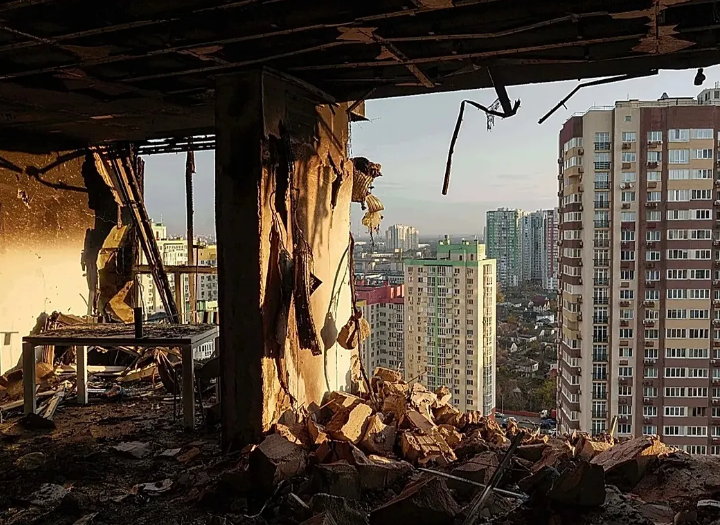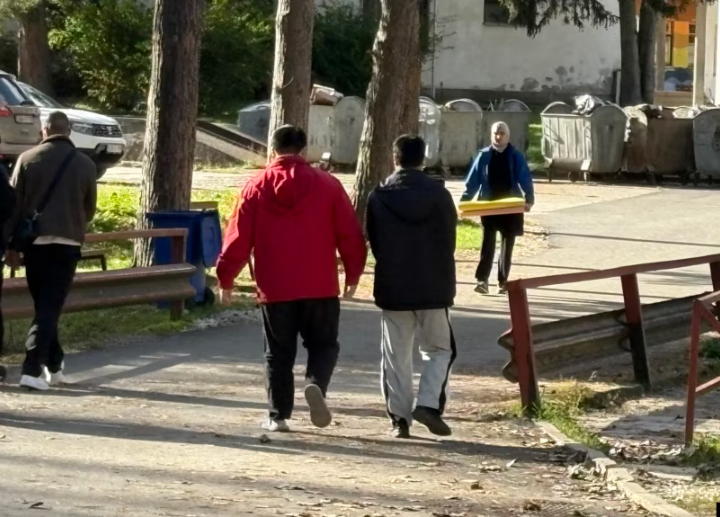
The tender for the construction of the second section of the highway in Montenegro has attracted bids from one company from China and three consortia: two Chinese and one Turkish-Azerbaijani.
One of the tender participants is China Communications Construction Company (CCCC), which is on the blacklist of the United States of America (USA).
The other two consortia from China are: Shandong Foreign Economic & Technical Cooperation – Shandong Luqiao Group and PowerChina-Stecol.
The third consortium is Turkish-Azerbaijani, Cengiz–Azvirt, which has been present in the region for more than a decade through its parent companies.
The start of construction for the second section, from Mateševo to Andrijevica in northern Montenegro, is planned for the end of the year, with works expected to be completed after five years.
The project value is 600 million euros, of which 150 million euros are non-refundable funds from the European Commission, 250 million from the Montenegrin budget, and 200 million are a loan from the European Bank for Reconstruction and Development (EBRD), with which the Government signed an agreement during the summer.
China Communications Construction Company – or CCCC
The Chinese state-owned company CCCC has been on the US blacklist since 2020 due to its links with the Chinese military.
This company and its branches were on the World Bank’s blacklist until 2016 due to fraudulent practices and suspicions of corruption in a national roads project in the Philippines.
It built the Hambantota port in southern Sri Lanka with a Chinese loan. After the Government of Sri Lanka was unable to repay the loan, it handed the port over to China for a 99-year management lease in 2017.
According to the organization Just Finance, CCCC has violated several laws during the construction of the E-763 highway in Serbia (on Corridor 11), which connects Belgrade with the Adriatic Sea. This company has been building some of the largest infrastructure projects in Serbia for years.
As part of the CRIC&CCCC consortium, it participated in the reconstruction and modernization of the Belgrade–Subotica high-speed railway line, during which the Novi Sad railway station was rebuilt. Its concrete roof collapsed on November 1, 2024, causing the death of 16 people.
It also built 31 kilometers of the “Miloš Veliki” highway, the Preljina–Požega section, the works of which have been postponed several times. The contract, worth 450 million euros, was secured without a tender, through a direct agreement with the state, while financing was provided via a loan from the Chinese Exim Bank.
In 2021, CCCC engaged the Slovac quarry as a subcontractor, owned by Zvonko Veselinović and Milan Radoičić, who were placed on the US sanctions list a few months later for ties to corruption networks and international organized crime.
CCCC is the parent company of China Road and Bridge Corporation (CRBC), which was the main contractor for the first section of the Montenegrin Bar–Boljare highway, 41 kilometers long, which cost Montenegro about 900 million euros. The construction, accompanied by numerous delays, lasted seven years, with a lack of transparency and fiscal and environmental problems, about which the EU repeatedly warned. Montenegro took a loan from the Chinese Exim Bank for this project. Due to difficulties in repaying the debt, the state – mediated by the EU – was forced to sign an agreement with two American and two European banks to protect the public debt from currency risk.
Consortium Shandong Foreign Economic & Technical Cooperation – Shandong Luqiao Group
The consortium of Shandong Foreign Economic & Technical Cooperation and Shandong Luqiao Group registered its representative office in Podgorica at the end of 2022.
The following year, it won the contract for the construction of the Budva–Tivat airport road (16 kilometers), worth 54 million euros, with a two-year construction deadline, according to the agreement signed on March 29, 2023. Although the deadline expired more than six months ago, the works are still ongoing.
Since July 2024, this consortium has also been carrying out reconstruction work on the Đurđevića Tara bridge in northern Montenegro, a project gifted by China.
In Serbia, the Shandong company won the works for the Požarevac–Golubac road in 2021 without a tender, through a state-to-state agreement, valued at 337 million euros. The completion predicted for the end of 2024 has been postponed until the beginning of 2026. Subcontractors included the firms Inkop (owned by Milan Radoičić and the brothers Zvonko and Žarko Veselinović) and Novi Pazar, which since 2022 has been working on another project in Serbia worth 158 million euros, mainly financed by a loan from the Chinese Exim Bank. All these companies are on the US sanctions list for organized crime and corruption.
In Bosnia and Herzegovina, the Shandong representative office, SDHS-CSI BH, signed a concession agreement for the construction of the Banja Luka–Prijedor highway, 40 kilometers long and worth about 300 million euros. Contract documents have been kept secret by the Banja Luka authorities, despite four court rulings requiring their publication. Completion of works, planned for the end of 2024, has been postponed until the spring of 2026.
Chinese State-owned Company PowerChina
PowerChina, a Chinese state-owned company, has extended its activity in the Balkans through subsidiaries like Sinohydro and PowerChina Resources.
In Bosnia and Herzegovina, it is involved in the Ivovik wind park project near Livno, which has been accompanied by complaints from residents and disputes over land and concession rights.
In June 2019, PowerChina (through Sinohydro and PowerChina Road Bridge Group) and AzVirt from Azerbaijan signed a contract for the construction of the Počitelj bridge (value 28 million euros). The works, which were supposed to be completed in March 2023, were only finalized in September 2024. All companies participating in this project were blacklisted by the Federation of Bosnia’s Highways in May 2023 for breach of contract.
In Serbia, PowerChina is participating in the Belgrade ring road project and the construction of the Belgrade subway. In December 2024, it signed a contract for the first phase of Subway Line 1, valued at 720 million euros, the details of which are “commercial secrets.” Also in 2024, PowerChina completed the first phase of the largest solar park in Serbia, Saraorci, and signed an agreement with Fortis Energy of Turkey for the development of solar and wind energy parks.
In Montenegro, PowerChina has no signed contracts, although it has met with several officials from the energy sector.
Consortium Cengiz–Azvirt
The consortium consists of the Turkish company Cengiz and the Azerbaijani company AzVirt. Both have won major road construction contracts in Bosnia and Herzegovina, Serbia, Croatia, and Slovenia.
Leading the consortium is Cengiz Holding, one of the largest Turkish private companies, with around 44,000 employees and revenues exceeding 5 billion euros. Its director, Mehmet Cengiz, is mentioned in the Panama Papers, through reports by the OCCRP organization, concerning offshore companies and suspicions of corruption in a dam project in Azerbaijan. Cengiz Holding’s success is linked to state projects in Turkey – the Istanbul–Ankara high-speed railway, Istanbul Airport – and its closeness to the power of President Recep Tayyip Erdoğan since the early 2000s.
In Bosnia, through a sister company, Cengiz built the Vlakovo–Tarčin section of Corridor 5C in 2012. Two years later, a 120-meter retaining wall collapsed before the road opened. The company then also built the Poprikuše–Nemila segments, as well as the Bosna and Zenica tunnels. The value of projects won by Cengiz in Bosnia exceeds 1 billion euros, mainly financed by the EBRD and the European Investment Bank. Cengiz has also built the Karavanke tunnel in Slovenia and carried out the reconstruction of the Križevci–Koprivnica railway line in Croatia. In July 2025, Cengiz Holding established the subsidiary Cengiz Insaat in Podgorica for road construction.
The second member of the consortium, AzVirt, is a private Azerbaijani company that has won tenders in Serbia and Bosnia. In June 2019, AzVirt was part of the Azerbaijani-Chinese consortium for the construction of the Počitelj bridge, and was later blacklisted for breach of contract. In May 2019, AzVirt and Hering from Široki Brijeg signed a contract for the construction of the Vranduk–Ponirak segment, valued at 76 million euros. The project was suspended in July 2023 after funds were spent and deadlines expired. AzVirt’s ownership is divided as follows: Elnur Alijev (25%), Falcom Holding (Luxembourg) (25%), Martin Beteiligungs (Germany) (30%) and Walz (20%). AzVirt has been operating in Podgorica since 2012, with only one employee and no significant revenue. In 2024, the company reported a loss of about 20 thousand euros.

 Azerbaijan protests to Russia after Kyiv embassy damaged in Russian missile attack
Azerbaijan protests to Russia after Kyiv embassy damaged in Russian missile attack  Japan urges China to scale back response in Taiwan row
Japan urges China to scale back response in Taiwan row  Kallas confirms EU working on new sanctions package against Russia
Kallas confirms EU working on new sanctions package against Russia  Germany agrees new military service plan to boost troop numbers
Germany agrees new military service plan to boost troop numbers  The Western Balkan route – A new path for chinese migrants to the west
The Western Balkan route – A new path for chinese migrants to the west  ‘Moscow-Belgrade-Ljubljana axis’: Dr. Verčič unpacks Russia’s ‘subtle’ info war
‘Moscow-Belgrade-Ljubljana axis’: Dr. Verčič unpacks Russia’s ‘subtle’ info war